The ‘Book Mystique Carries On With MacBook Pro and MacBook
by Charles W. Moore
This column is called “The ‘Book Mystique” - formerly “The PowerBook Mystique,” which I think has better alliteration, but Apple no longer makes PowerBooks, and while it was possible to sort of stretch the term to implicitly include the iBook under the “PowerBook” umbrella, now that there are four different families of Apple portables with “Book”-suffixed names, “The ‘Book Mystique” is more inclusively appropriate.
It’s not just a column series name, but also an allusion to an ineffable quality that Apple laptops/notebooks have always had, which incorporates style, charm, elegance, and functionality, but is more than the sum of these characteristics. It’s a “mystique,” the reason why just looking at my ‘Books has always been a pleasure in itself, similar to viewing a favorite objet d’art. Indeed, I would venture that the Apple ‘Book is an objet d’art.
SF Gate Columnist Mark Morford gets the “Book Mystique. If you think my enthusiasm for Apple portables is extravagant, check out Mark’s latest column, restrainedly titled “When Apple Rules The World - What does it mean when you really, really want to lick a new MacBook Pro, and swoon?”
And that’s just warmup. Morford goes on to reference his new MacBook Pro as a “silky hunk of aluminum and wire and divine Chinese factory-made love,” a product “coated in some sort of hot golden fairy dust... freely adorned with a luminous halo that tastes of hope and sex and candy.”
Waxing rhapsodic, Mark continues: “...there is real thought and muscle and Zen-like joy behind the brand, and as an owner of one of these new Core 2 Duos I am here to tell you these hot little MacBook bitches are full of sound and fury, signifying everything.”
“Does that sound like idiotic gushing?,” Mark asks rhetorically. “ I do not really care. Because like it or not, Apple has actually managed something quite radical for a tech company: They have not merely changed the world, they have actually improved it.... They have added a touch of grace. “
Ah yes, grace. Perhaps that is the most accurate one-word descriptor. This 17” PowerBook I’m typing these words on certainly has grace.... and elegance.... and so far, through nine months of intensive use, it’s been as dependable as the proverbial anvil. The combination is truly alluring. A functional and reliable tool of my trade that’s sooooo nice to look at and touch. Way cool.
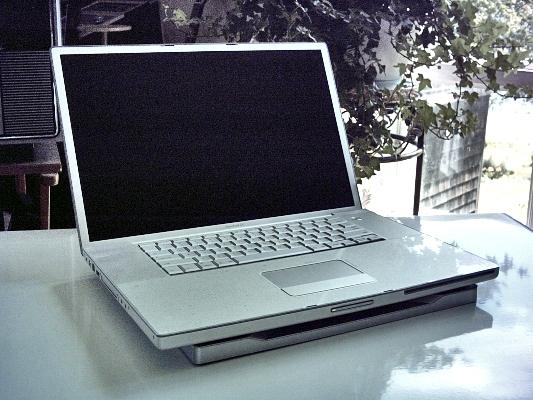
By way of comparison with Apple’s sublime achievement, Morford charges Microsoft with making “everyone’s workday a bit more bloated and annoying and sad and just a little uglier, buggy as hell, frustrating, virusy and lonely and numbing... quite an impressive accomplishment.”
Indeed, I can go to the computer store, and look at all the PC notebooks on display, from the inexorably clunky “McLaptop” Dells to some pretty attractive machines by Acer and by times Sony and others, but while some have their own respective charm, none comes within a country mile of the ‘Book Mystique, and knowing that Windows is lurking inside places them out of serious consideration for me. I used to say “nothing else is a PowerBook” back in the day. Haven’t really been able to since the iBook debuted in ‘99, and certainly not now, but happily, the MacBook Pro and MacBook have turned out to be fully capable of sustaining the magic.
However, the old PowerBooks and iBooks still have it. My 17-incher does, and so do my iBook and hotrodded Pismo PowerBook which just oozes the erstwhile PowerBook Mystique. Even my old PowerBook 5300, the first of the line for me and which is still around brings a smile to my face when I dig it out and start it up from time to time.
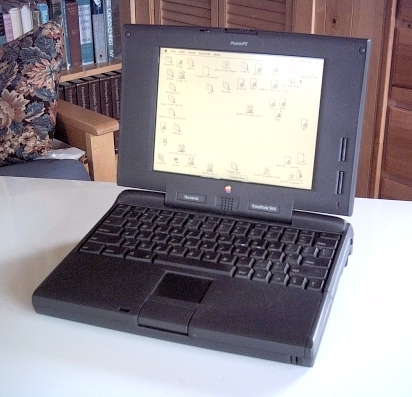
I recall vividly the day I first took it out of the box, almost exactly 10 years ago. The 5300 grabbed me like no other computer ever had. I already liked Macs a lot, but I instantly fell in love with the PowerBook. The clean, squared-off styling and small footprint appealed to me aesthetically, and I was enchanted by the clever miniaturization of the features of my desktop Macs into such a fetchingly compact unit. This, it seemed to me, was the quintessentially logical computer -- the logical Mac. The original conception of the Macintosh was as a compact, somewhat portable system, and the PowerBook enhanced both qualities. I was irretrievably hooked, and it only got better from there.
The PowerBook 5300 was not Apple’s best iteration of the genre - in fact more than a few would contend that it was one of the least desirable, if not the worst ever. Nevertheless, mine served me faithfully for nearly three years and never let me down disastrously. My daughter used it for another three years after that, and while it’s been retired now since 2002, as I noted, it still works.
My next PowerBook was a 233 MHz PDQ/WallStreet G3 Series that represented a quantum leap in both performance and refinement. Again love at first sight. I proved a flawless workhorse for 3 1/2 years until the processor failed with no warning. That was definitely a sour note - the most discordant in my entire ‘Book ownership experience to date - but I was able to recover my files (by swapping the hard drive into the 5300’s expansion bay module no less, and then transferring them to the Pismo, which I had purchased nine months earlier).
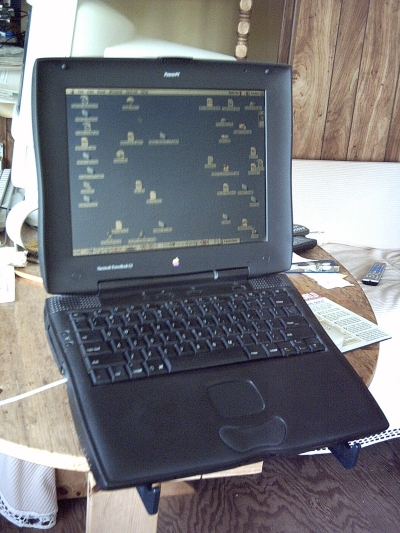
The Pismo was pressed into production service, but the WallStreet was subsequently resurrected by simply swapping in a scrounged processor daughtercard. It hasn’t missed a beat since, and is still in daily use by my wife and still has plenty of 'Book Mystique.
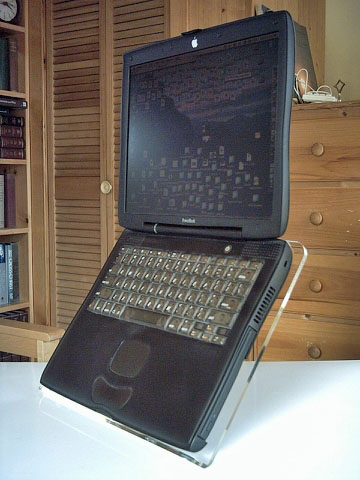
The Pismo, purchased used when it was a year old, has been simply superb - completely trouble-free from the get-go. It’s still my number-two computer for composing and editing. I find the Pismo particularly well-endowed with the 'Book Mystique.
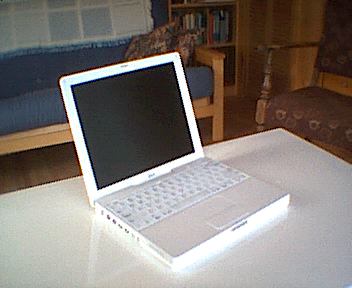
The little 700 MHz G3 iBook, like the 5300 one of Apple’s statistically less-successful efforts reliability-wise, has in this anecdotal instance been almost flawless over the past four years. It’s still my road-warrioring ‘Book running OS 10.4.8, and lately I’ve been using it for slide-scanning and photo-editing with Photoshop Elements and been very happy with its performance in that role. It's been a great computer, and while I was a bit skeptical going in that the iBook would really have the 'Book Mystique, I'm happy to report that it does.
The service I’m getting from this little fleet of ‘Books is still so satisfactory that I haven’t yet got a very strong urge to go MacIntel, but when the time comes, testimonials like Mark Morford’s reassure me that the Mystique is still there, and perhaps its best ever.
Digg thisdel.icio.us